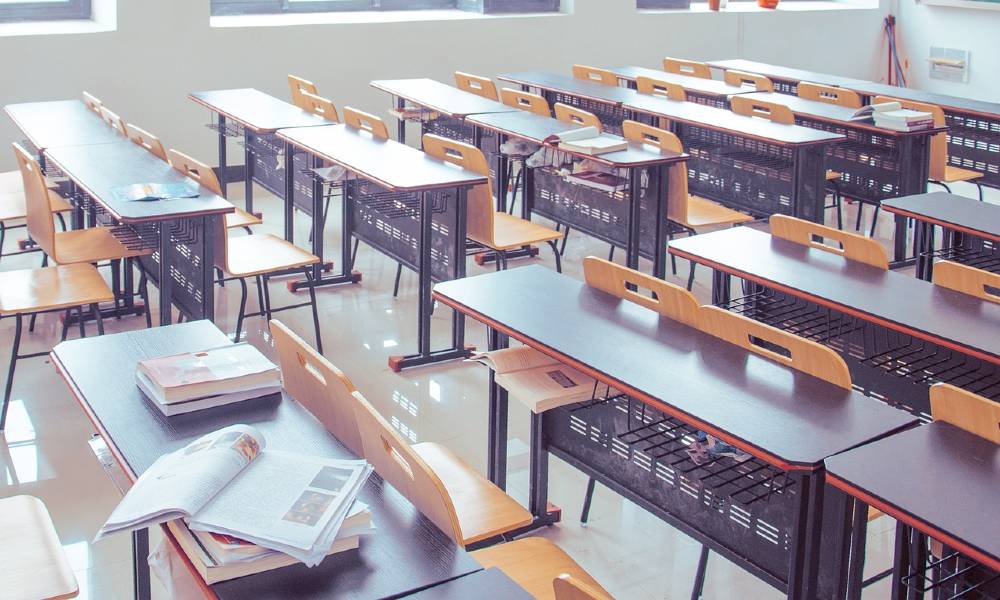Students and school administrations remain clueless of what the new academic year’s curriculum will look like for students in Karnataka.
As they write their preparatory exams, students in the state are not sure what their educational future is going to look like in the next few months as the new academic year begins. The state government in 2023 had announced the formulating of a new state education policy but students are unaware of what it will look like.
Professor S.R. Niranjana, vice chairman of Karnataka State Higher Education Council, said the expert committee is still in the process of drafting the new state education policy. He said that the council headed by Prof. Sukhdev Thorat, has been given “free” time to work on the policy and it cannot be predicted if the policy will be ready by February end as directed by the government. However, he refused to give any further details citing the confidential nature of the issue.
The Karnataka government formed an expert committee to draft the State Education Policy in October 2023 and directed it to submit a report by Feb. 28, before the start of new academic year. The committee comprised of several renowned professors from various departments and universities and educationists like Prof. Yogendra Yadav, Sonam Wangchuk, Dr. Sudhir Krishnaswamy, amongst several others.
The Congress government, in 2023, had announced that the state will scrap the new National Education Policy (NEP) from the upcoming academic year. Interestingly, Karnataka became the first state to implement the NEP after its announcement in 2020 during the Bharatiya Janata Party (BJP) government’s rule in the state.
According to experts, the confusion about the curriculum can impact students’ lives and even reduce their choices.
Prof. M. Narayana Swamy, Chairman and Dean of Department of Education, Bangalore University said that it is important to give clarity to students so that they know how to prepare for the new curriculum.
He emphasized the importance of promoting the local language to help students understand and participate easily in the education system.
While announcing the decision to withdraw the NEP, the Karnataka government had said that the needs of the students will be kept in mind while drafting a new policy for them.
Prof. C.B. Ahobala Rao, headmaster of the Bangalore Higher Secondary School said, “We implemented the New Education Policy when it was adopted by the state. But we have no information regarding the new State Education Policy.”
He admitted that both teachers and students have very less information about the way the curriculum is designed.
Trinethra, a B.A. Honours student at the Mount Carmel College, Bangalore said, “We don’t know much about either the NEP or the upcoming state policy. As far as I know the NEP was not implemented completely in the state, so its withdrawal will not be as big of a concern.”
Sunitha Param, guardian of a 11th standard student at a private school in Whitefield said that she is unable to understand how her ward will cope with the new policy if any drastic changes are introduced in it. She expressed concern that there is no mechanism by which people could give suggestions on the new policy that is being drafted. “What is the point if you don’t consult the people about the implementation of this policy impacts?” she asked.
After the 2023 assembly elections, the Congress government in the state declared that from the next academic year, the state will not follow the National Education Policy, 2020 and form one of its own. It must be noted that the NEP 2020, promoted teaching local languages in the early stages of learning.
Suggesting that political motives must not guide the policymakers Prof. Venugopal, an economics professor at National College, Bangalore said that policies must be formed keeping in mind the best interests of the students. “I was invited to participate in the discussions of the expert committee but I couldn’t go. My opinion is that the committee should keep in mind the interests of the students, promote learning vernacular languages and ease the academic burden of the students.
The policy should also keep in mind the way teachers deal with students. It is cardinal that mutual trust is built between the students and teachers and everything is done in a fair manner,” he added.
The NEP
The National Education Policy, 2020, was proposed by the Ministry of Education of the Government of India to change the various aspects of the education system in India.
Amongst other changes, the policy, as per the government notification, aims to universalize pre-primary education and provides special emphasis on the attainment of foundational literacy/numeracy in primary school and beyond for all by 2025.
One of the most important changes in the NEP were transformation of the curriculum including pedagogy. The policy also aimed to reform the current exams and assessment system, strengthen teacher training, and restructure the education regulatory framework.
However, several states like Tamil Nadu, Kerala and Karnataka resisted and refused to implement the policy. However, many other states have implemented the policy with considerable tweaks, adopting only certain features of the NEP 2020.




